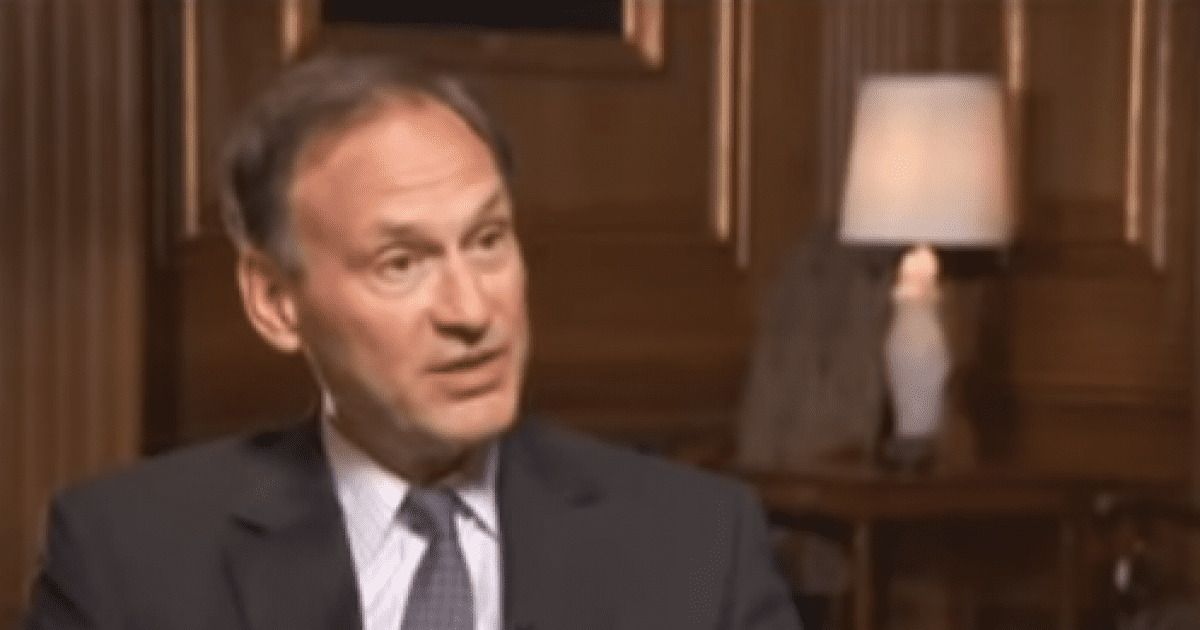Everyone has been patiently eyeing recent developments regarding election fraud.
Everyone including Justices of the Supreme Court.
In a recent change, by Justice Samuel Alito, Pennsylvania legal council is now being directed to respond to the emergency injunction filed by representative Mike Kelly, even earlier.
The deadline has been changed from the original date of December 9th, to December 8th.
It is not known why the deadline was changed, but many suspect it has something to do with the merits of the actual case
Here is what we could gather so far:
The Red State Observer had this to say:
Early Sunday morning the Supreme Court docket for this case was updated, and the deadline for the response from the state defendants was moved up to 9:00 am on December 8. No explanation was provided.
As my two prior articles explain, December 8 is a noteworthy date as that is six days prior to the meeting of the Electoral College. A statute passed by Congress states that if a State has resolved all disputes over its elections, certifies the results, and names Electors on or before that day, that determination “shall be conclusive, and shall govern in the counting of the electoral votes as provided in the Constitution, and as hereinafter regulated, so far as the ascertainment of the electors appointed by such State is concerned.” Title 3, USC, Sec. 5.
What can be made of the fact that Justice Alito now wants the state defendants’ response into the Court with a full day remaining for the Court to take action?
On the one had it could be rationalized that Justice Alito — and likely other members of the Court — want the views of both parties to be reflected in the record before it takes action, whatever that action may be.
Keep in mind that Justice Alito could simply deny the injunctive relief on his own, without seeking the response of the state defendants. That is an option he seems to have rejected. If he were persuaded that the application of the doctrine of “laches” by the Penn. Supreme Court was appropriate, or that only issues of state law were presented in the matter, the correct action for him to have taken would have been to simply deny the Emergency Application.
He has not done so.
Legal Insurrection reported more details:
There is a lot of chatter that such a long period of time, under the circumstances, must be a way for Alito to let the application die on the vine, that the application would be “moot” or otherwise pushing it off to make meaningful relief impossible. Certainly, we can’t read Alito’s mind, but if there’s anyone on SCOTUS I don’t worry about playing such games, it’s Alito (and Thomas, too early to tell for Gorsuch, Kavanaugh, or Barrett).
In my mind-reading exercise, Alito giving the respondents’ enough time to fully prepare opposition likely means he and some other Justices take the matter seriously, and plan to rule on the merits once the opposition is submitted, rather than limiting their ruling to emergency injunctive relief. They could treat the Emergency Application as a Petition for Certiorari, accept it, and rule substantively. The few days gives the Justice enough time to prepare their respective opinions — it’s not like they really need briefs from the respondents to know the counter-arguments.
What that ultimate merits ruling would be remains to be seen. In my prior post, I was very pessimistic that SCOTUS would take the case or rule in a way that would change the state result. That’s not to say that what the PA Supreme Court did was right — it wasn’t and that PA Court has acted more like a litigant throughout this process. Mark Levin’s Landmark Legal Foundation has filed an Amicus Brief laying out the defects with the PA Supreme Court ruling.
The issue I keep coming back to is what is the remedy. SCOTUS could rule that the non-absentee mail-in votes were unlawful, and order that PA certify the vote and appoint electors based on the lawful vote only.



Join the conversation!
Please share your thoughts about this article below. We value your opinions, and would love to see you add to the discussion!